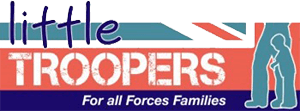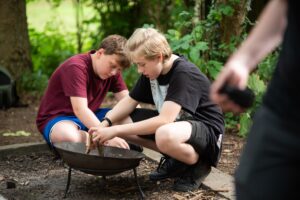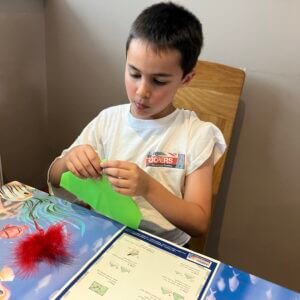For this month’s ‘meet the teacher’ we caught up with Julie Howlett, Inclusion Lead at St Michaels Primary School and Nursery in Colchester. She tells us how having a dedicated little troopers club has had a positive impact on service children in her school. She also believes that no military child should be disadvantaged because they are from a forces family.
Tell us about yourself and how you came to be a teacher
Working with children is something I had never considered. Then I was invited to support a child who was struggling in mainstream education and it led to a passion for helping vulnerable pupils. Surprisingly, I’m at my calmest when working with children who find school, and sometimes life, challenging. That is when I became an Inclusion Lead for the school and it meant I could devote all my time to focusing on those children.
How many military children are there in your school?
We currently have around 85 service children attending our school, all of them are from Army families. This number fluctuates throughout the year due to the number of postings to and from 16 Air Assault Brigade in Colchester.
How does your school support forces’ families?
As a school we have great links with the Armed Services in the area so we can be prepared for large deployments or longer exercises. We run our Little Troopers club every half term. Our service pupils can enjoy spending time with others who understand their needs and they get to participate in fun activities together. When deployments take place, we run clubs for those service children whose parents are away. They can write letters or draw pictures that are then sent home or to a serving family member.
Do you have a connection to the military? If so do you think this helps you when interacting with service children?
I am a military spouse; my husband serves in the Parachute Regiment, so I hope it brings an understanding to the challenge’s families face day to day. As a school we have several staff who have either served or are part of the military community. They can really empathise and support both children and parents.
What initiatives or projects have worked particularly well?
Our Little Troopers club has had a positive impact on the pupils. They get to see other children who are in the same position as them and to feel part of a special group for a while. The resources the charity, Little Troopers, have provided are invaluable. We are hopeful that in September these clubs can continue to go ahead if restrictions ease in school, as that time has been missed. Being part of the Little Troopers Roadshow was a fantastic opportunity to get our service pupils together and celebrate them.
Why do you think it’s important to offer targeted support for military children in school?
It is vital that we quickly develop relationships with pupils so that we can get the right support in place, whether that is academic or pastoral. If pupils move schools often learning can be lost and we need to act quickly and appropriately to provide the right support. Every military child’s experience is individual, and the support needs to reflect that.
In your experience, what are the biggest challenges faced by military children in school?
I feel like the biggest challenge for families in education is consistent access to specialist educational support. Every local authority works differently, and each move a family must make for a posting can lead to either a delay in services or having to start the process all over again. This can mean years in lost support for vulnerable children if multiple moves take place. I believe no child should be put at a disadvantage because they are from military families.
Have these challenges changed during your time as a teacher?
It is certainly getting better. Hopefully the commitment from the government to arrange postings so that it has the least amount of disruption to a child’s education will help. There is a better awareness of service pupil needs and clearer signposting for the correct support. Also having a focus on children’s wellbeing and mental health as a whole education community can only ever be a good thing when it comes to supporting our military children.
What’s the one thing you think is most important for schools to do for service children?
To be the most accepting and caring school to service children as possible. They give up a lot so that their parents can serve their country and we need to return that by making sure they are not at a disadvantage because of this. They will always thrive if they feel welcome, trusted and part of a wider community.
What advice would you offer to other teachers and schools working with military children?
The advice I would give for other staff is to gain an understanding of what life is like for service children and families by building links with the local armed forces and getting them involved in school life. Employ teachers and support staff who have experience with service life as they will be invaluable when supporting pupils throughout their education. Finally, don’t assume being a service child is a negative, the experience they live also gives them some of the best qualities needed to succeed in life.
If you’re a teacher and would like to be interviewed for our ‘Meet the Teacher’ feature, then email us.






